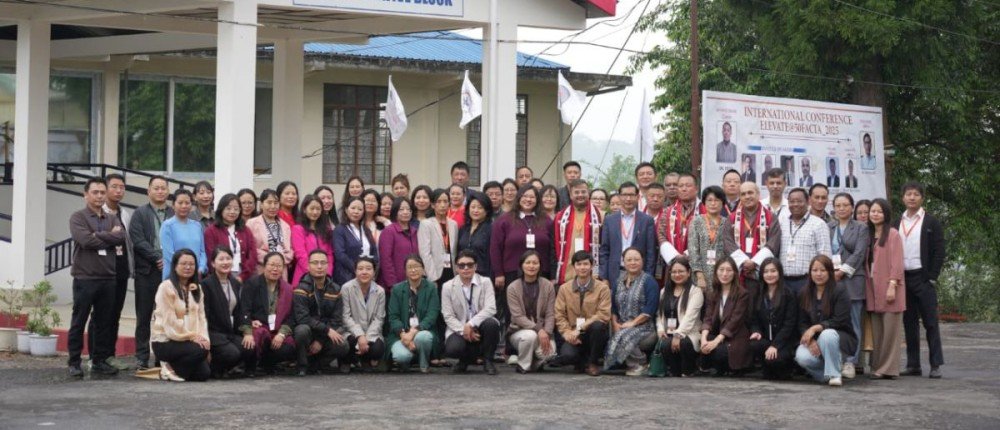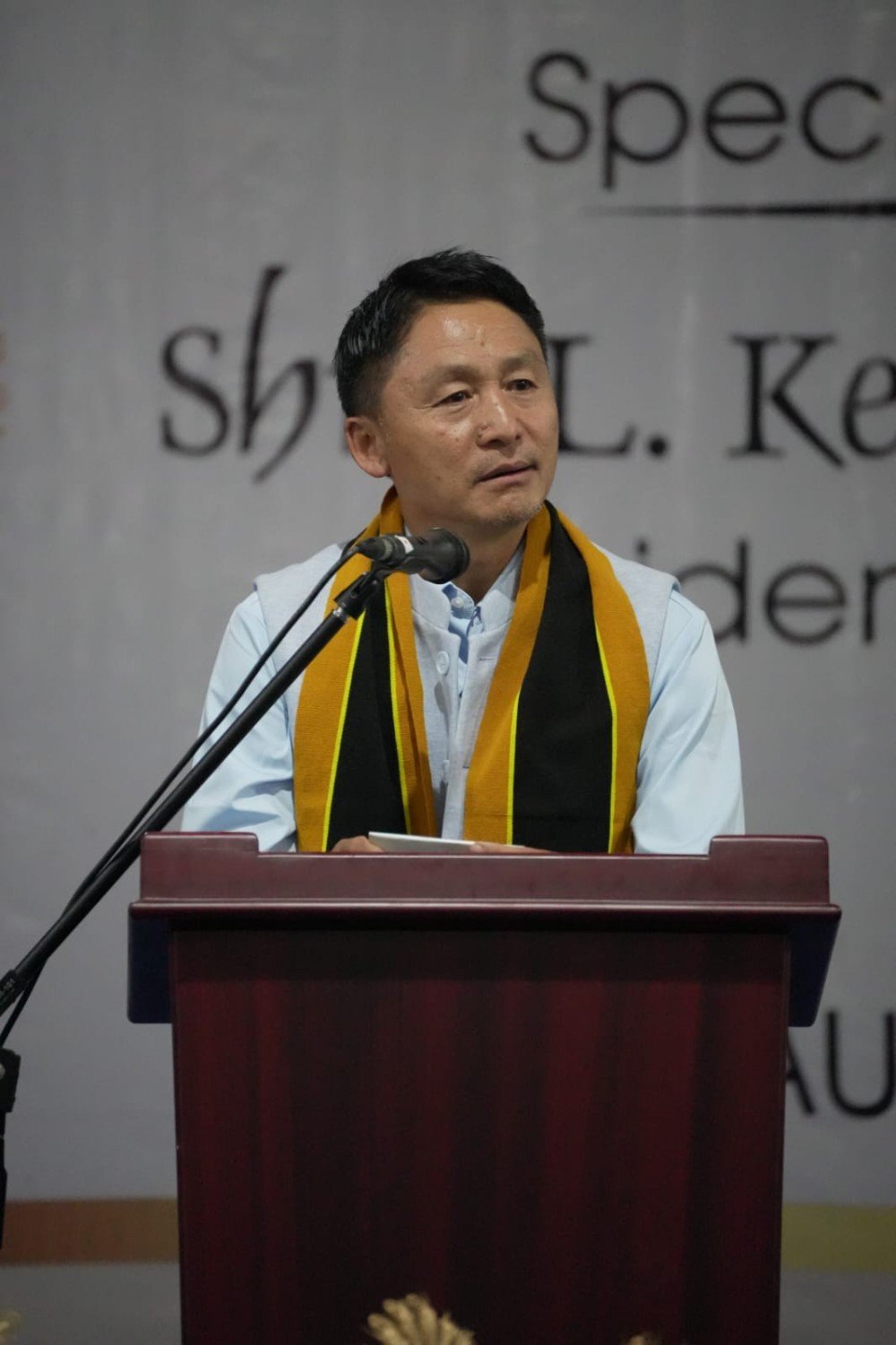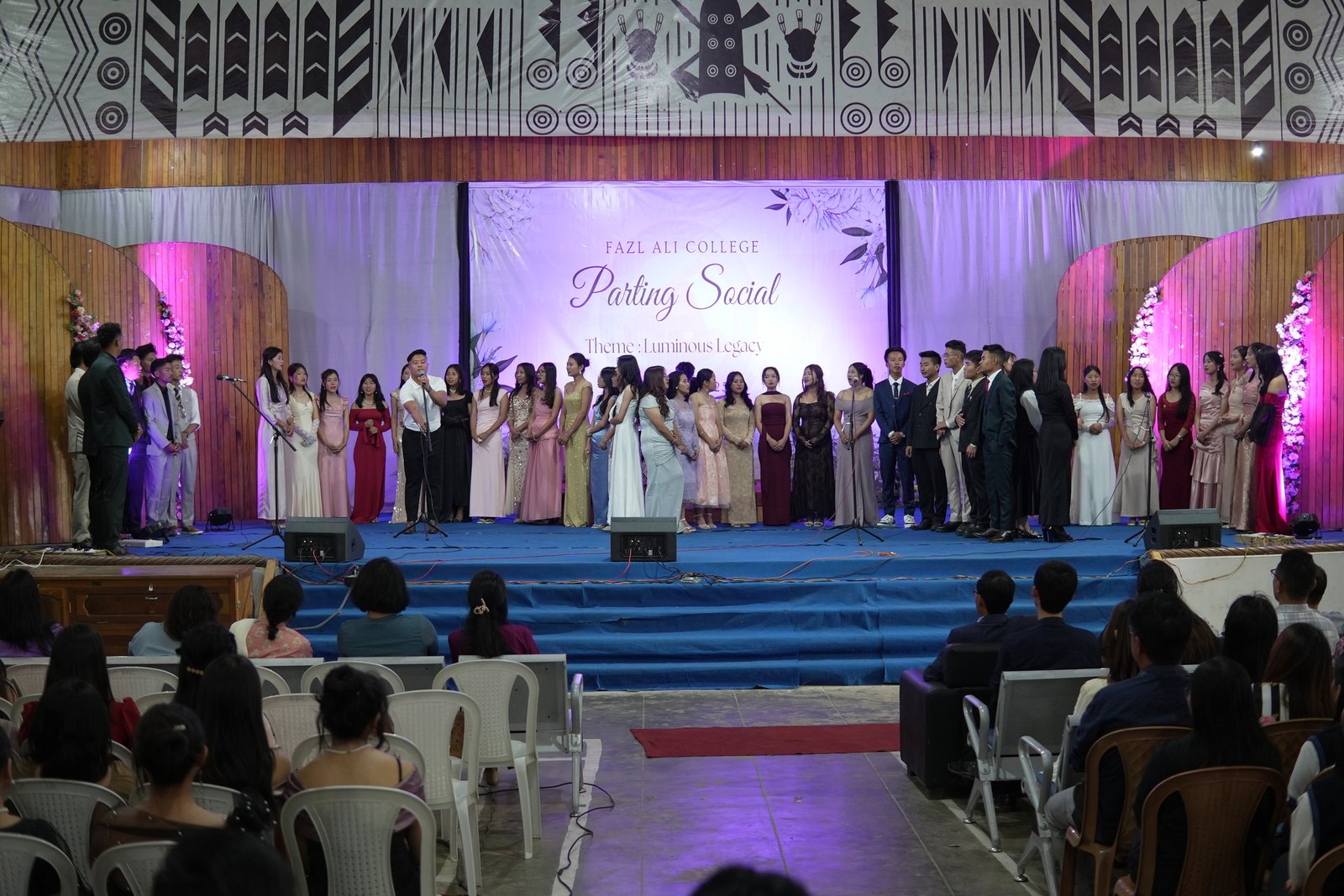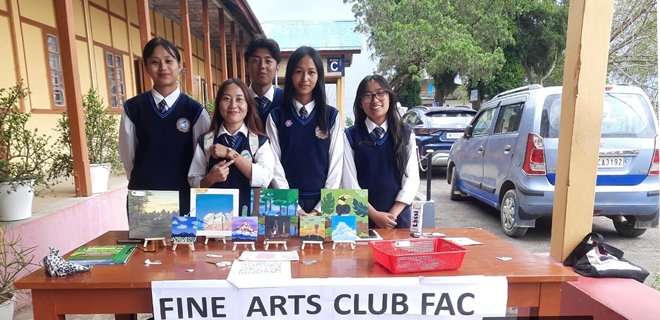The Department of Zoology, Fazl Ali College, in collaboration with the Nagaland Beekeeping & Honey Mission (NBHM), Government of Nagaland, successfully conducted a two-day training program on ‘Scientific Beekeeping’ on March 12 and 13, 2025. The program aimed at equipping participants with both theoretical knowledge and practical skills to promote sustainable apiculture practices.
The inaugural session was conducted by Smti. Imlinungla, Head, Department of Zoology, who introduced the objectives of the training. Dr. I. Wati Imchen, Principal, Fazl Ali College extended a warm welcome, emphasizing the institution’s commitment to fostering research and skill development in line with the National Education Policy (NEP) 2020. Representing NBHM, Mr. Temjenchuba K. Char, the in-charge of Mokokchung District, addressed the gathering and underscored the growing potential of beekeeping as an economically viable and ecologically beneficial practice. He highlighted the application of scientific tools and equipment in modern apiculture. Dr. Sentiwati Aier, an alumnus of FAC and a renowned apiarist- recipient of the District-Level Award for Best Beekeeper 2024, discussed the role of beekeeping in Nagaland, with special reference to Mokokchung.
Further, Mr. Nzanbemo K. Lotha, Nodal Officer of NBHM, provided insights into honeybee biology and behavior, He elaborated on the need for scientific intervention in traditional beekeeping practices to enhance productivity and sustainability, importance of honeybee conservation, pollination, and the contribution of apiculture to local agricultural productivity.
The session also covered essential aspects of apiary management, including the proper setup and maintenance of bee hives, disease control measures, and strategies to improve honey production. The discussions concluded with an engaging interactive session.
Under the supervision of Mr. Temjenchuba K. Char and Dr. Sentiwati Aier with the assistance of Mr. Akangneken, Apiarist from Khensa Village, gave a live demonstration of transfer of bee colony from a traditional box to a scientific bee box. The participants were also taught how to identify different bee castes and understand their specific roles within the colony. A significant milestone of the program was the installation of the first batch of scientific bee box along with one bee colony from NBHM in the college campus, marking a step towards establishing a longterm apiary project in the institution.
The second day was dedicated to hands-on training at Dr. Sentiwati Aier’s Apiary at Yisemyong, Mokokchung. The two-day program concluded on a high note, with experts commending the enthusiasm and active participation of the participants. The event has set the foundation for future collaborations and capacity-building initiatives aimed at promoting scientific beekeeping as a viable livelihood option while contributing to ecological sustainability. This training program was attended by students enrolled under Skill Enhancement Course (Apiculture), core students of Zoology, faculty and staff of the department.





